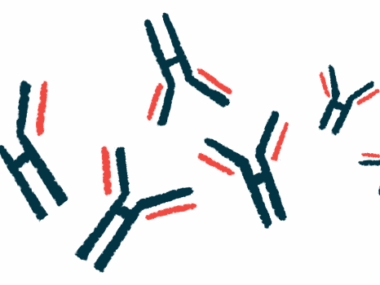GRIPHON Trial Shows Uptravi Can Delay PAH Progression in SSc Patients
Written by |

Treatment with Uptravi (selexipag) was shown to be safe and reduced the risk of pulmonary arterial hypertension (PAH) progression in patients with systemic sclerosis (SSc), according to a follow-up analysis of GRIPHON trial data.
The findings were featured in a report titled, “Selexipag for the treatment of connective tissue disease-associated pulmonary arterial hypertension,” published in the European Respiratory Journal.
Uptravi, formerly known as ACT-293987 and developed by Actelion Pharmaceuticals, is able to activate cellular receptors that are involved in the dilation of blood vessels. The therapy is approved by the U.S. Food and Drug Administration (FDA) and the European Union for the treatment of PAH.
The Phase 3 GRIPHON trial (NCT01106014) was designed to demonstrate the safety and effectiveness of Uptravi to delay PAH progression compared to a placebo. The study counted several patients, including those whose PAH was associated with connective-tissue diseases (CTD). Specifically, 170 patients with PAH related to SSc participated, along with 82 with PAH related to systemic lupus erythematosus (SLE), 37 patients with PAH related to mixed connective-tissue diseases (CTD), and 45 with unspecified CTD.
Patients were randomly assigned to treatment or placebo groups. The individualized Uptravi dose ranged between 200 microgram (mcg) twice a day up to 1,600 mcg twice a day, according to patients’ PAH symptoms and disease maintenance requirements.
Researchers reported that Uptravi treatment reduced by 41% the risk of PAH progression or mortality compared to a placebo, regardless of the type of CTD the patients presented or the prior PAH therapy used.
In addition, upon Uptravi treatment, those with PAH-SSc and PAH-SLE had a disease-progression risk reduction of 44% and 34%, respectively.
Overall, Uptravi was found to be safe, and the most frequent treatment-related adverse events reported were headaches, diarrhea, nausea, vomiting, and pain in the extremities — all known adverse effects of treatment with this therapy.
The data also demonstrated that Uptravi can be beneficial for patients with PAH-SSc, delaying disease progression even in combination with other PAH therapies, such as Tracleer (bosentan) or Adcirca (tadalafil).
“These data support the use of multiple PAH therapies when treating patients with PAH-CTD and emphasize that this treatment strategy can yield benefits in a population who had previously been considered difficult to treat,” the researchers wrote.





